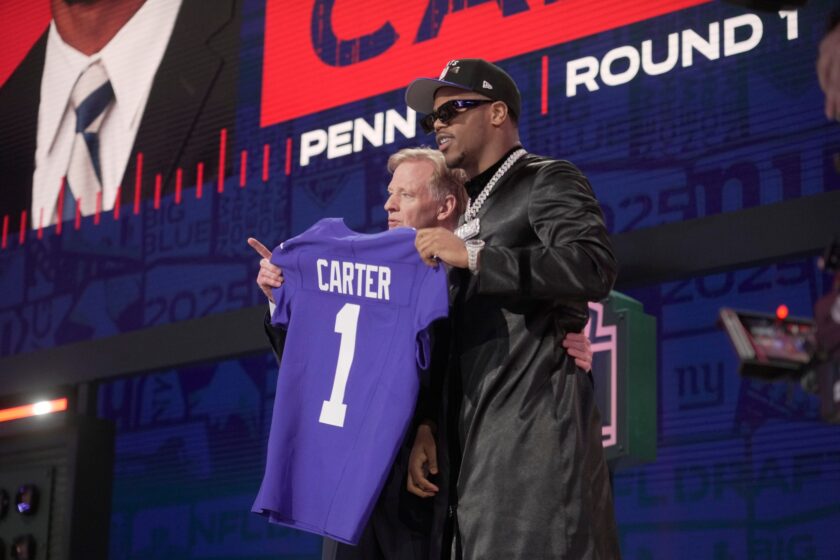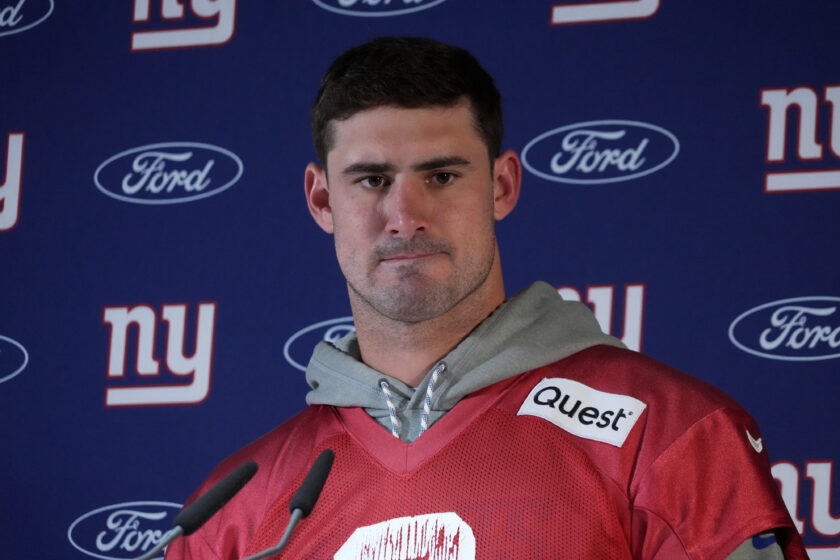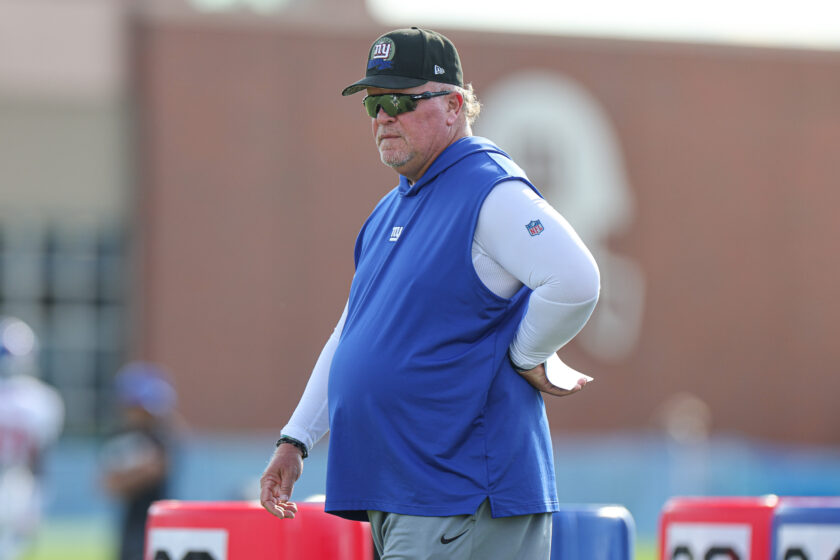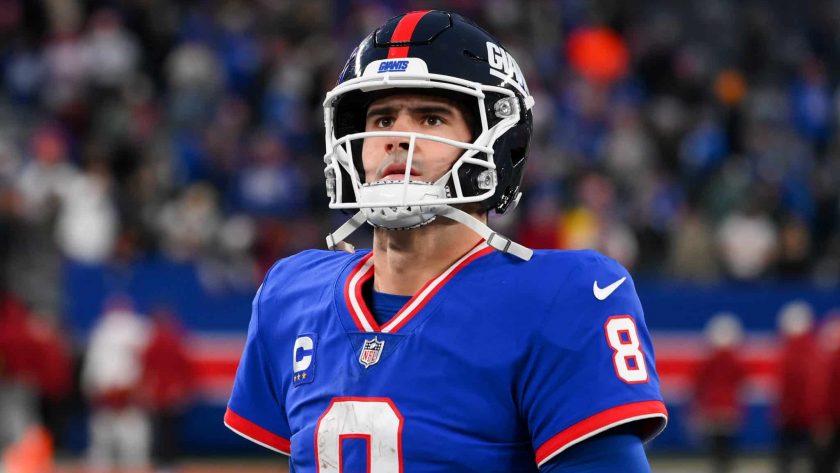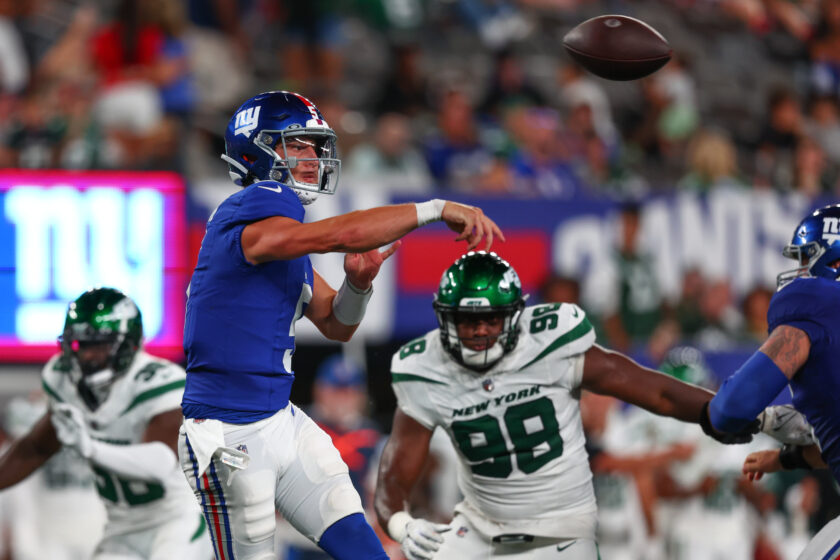New York Giants’ DB additions should motivate DeAndre Baker in 2020
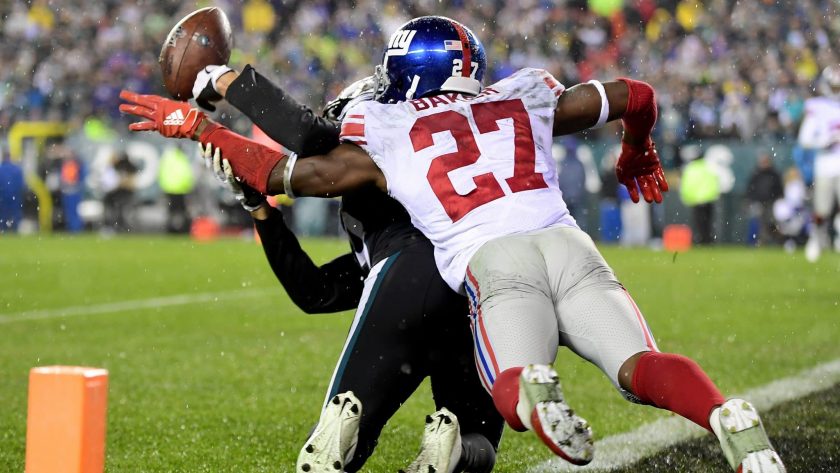
The New York Giants added significant depth to the defensive backfield, a move that should motivate DeAndre Baker in his second season.
[sc name=”ryan-honey-banner” ]DeAndre Baker‘s college head coach, Georgia’s Kirby Smart, said it best when he noted to Paul Schwartz of the New York Post, “there’s not many rookie corners that aren’t going to struggle in [the NFL].”
He’s absolutely right, and Baker’s rookie-year numbers prove it. The New York Giants corner, after Big Blue drafted him with 2019’s No. 30 overall selection, allowed quarterbacks to complete 61.4% of throws for 850 yards and six touchdowns when targeting him. He additionally recorded a disappointing 48.4 Pro Football Focus grade.
All in all, there’s no arguing that Baker’s first NFL campaign was filled with both on-field and effort-related struggles.
So entering year No. 2 (we’re still optimistic a season will occur…somewhat), Baker could be on the hot seat if he doesn’t significantly improve. You could argue he’s on the hot seat already, especially after the Giants’ offseason additions to the secondary.
And these moves, to be honest, should light a fire under Baker ahead of the 2020 season.
Depth is everything at a number of positions, but especially in the defensive backfield. You can never possess too many bodies on the roster in the secondary. It’s a concept that’s even more the case when you’re the Giants, a team that’s employed a below-average defensive back unit for a number of years.
Big Blue certainly had that notion in mind coming off another disappointing campaign in which it allowed 264.1 passing yards per game (28th in the league). Thus, New York ultimately drafted Darnay Holmes and Chris Williamson respectively in the fourth and seventh rounds.
Not to mention, the second-round selection of safety Xavier McKinney will likely bring Julian Love back to corner, a position he performed at during his Notre Dame days.
So all of a sudden, there may be a multitude of individuals breathing down Baker’s neck when it comes to the starting cornerback spot. It’s a spot that’s likely his own right now, but nonetheless, a role that’s additionally his to lose. And with a mostly new coaching staff, it’ll become that much larger of a task for the young corner to really prove himself.
It’s unlikely the Giants will bench him completely after just one year, especially since they gave up three picks to trade back into the first round to draft him. But his overall playing time at one of the two main starting cornerback spots could be in jeopardy if he doesn’t put on a show almost right away, and it’s not like the Giants don’t have any sort of replacement for him.
If Baker does indeed struggle, there’s a possibility they could move him to the more physical but lower-profile nickel corner spot. He did lead the Giants corners in total tackles last year with 61 and New York might end up preferring someone like Love in Baker’s spot instead.
Don’t forget, New York drafted Love as a corner and fielded him at strong safety last year after Jabrill Peppers went down with a transverse process fracture in Week 12. Love was then potentially going to become the team’s starting free safety in 2020 after the parting of ways with Antoine Bethea and before the selection of McKinney.
There’s reason to believe the Giants could end up wanting to expand Love’s versatility within the team’s secondary even more and provide him with in-game reps at the corner position opposite the newly signed James Bradberry.
This Giants team, as a whole, will carry a number of options at cornerback with a new head coach who’s making it clear that everyone must earn their roster and depth chart spots. These factors should provide Baker with a significant level of motivation heading into his second season, and a number of his issues will likely need to be fixed in an efficient manner.

